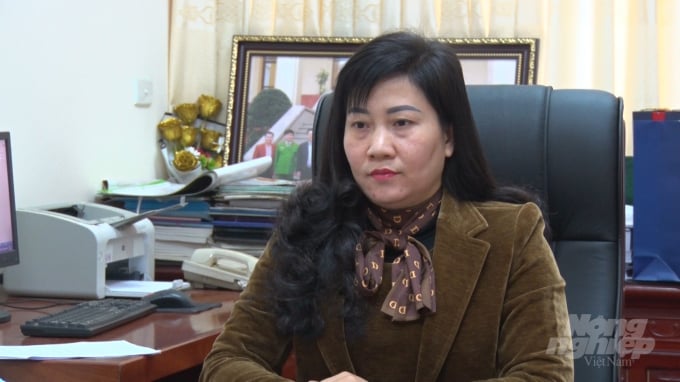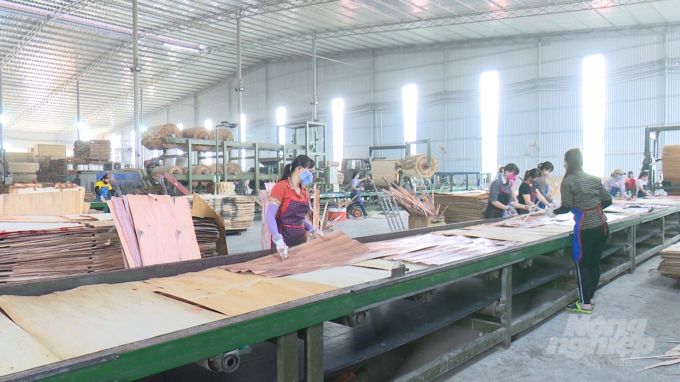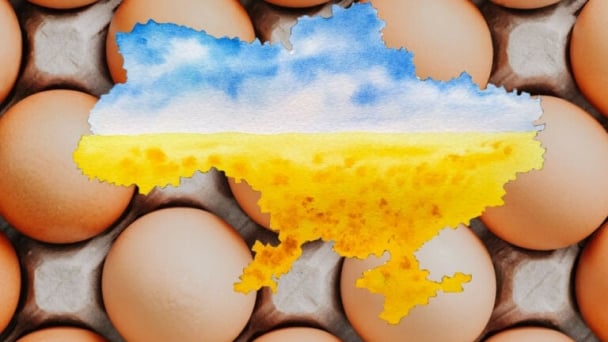May 20, 2025 | 17:39 GMT +7
May 20, 2025 | 17:39 GMT +7
Hotline: 0913.378.918
May 20, 2025 | 17:39 GMT +7
Hotline: 0913.378.918

Mrs. Do Thi Minh Hoa - Vice Chairman of Bac Kan Provincial People's Committee. Photo: Toan Nguyen.
The most essential and decisive solution for agroforestry development in recent times in Bac Kan province is the OCOP program for each commune and ward. Bac Kan province has developed agricultural products, including agricultural products that have become commodities through preliminary processing and deep processing, which have increasingly improved in quality, ensuring standards in terms of design and product packaging.
Bac Kan province does a powerful job in trade promotion, continuously organizing programs inside and outside the province, including Hanoi. In 2021, in the context of complicated developments of the Covid-19 epidemic, Bac Kan province will switch to trade promotion on electronic channels and trading platforms. With such solutions, agricultural products of Bac Kan province have been well consumed and appreciated for their quality.
As of 2021, Bac Kan province has 170 OCOP products, which have met the standards of 3 stars or more. 5-star recognized products are participating in the market in major provinces and cities across the country. Products are participating in export in markets that require pretty high standards. For example, the European market with Tai Hoan vermicelli Cooperative (exported to the Czech Republic); The agricultural products processing products of MISAKI Vietnam Company are apricots, ginger, palanquin or products processed from vegetables, radishes, etc., which are exported to Japan.
It can be said that this is not a great result, too good, but it is the first step to hope that agricultural products of Bac Kan province will develop. The province focuses on exploiting value endemism, enhancing value, and raising income for farmers.

Tai Hoan vermicelli is a 5-star OCOP product of Bac Kan province that has been exported to the European market. Photo: Toan Nguyen.
Bac Kan province has gone very methodically to develop agriculture. The Resolution of the Provincial Party Congress for the 2020-2025 term has identified agriculture as one of the four critical tasks.
The Party Committee of Bac Kan province has issued Resolution No. 09 on cooperative development, cooperative collective economy, which has a significant impact on the change of production organization in agricultural production; Resolution No.10 on the development of commodity agriculture, with a full scale of Bac Kan province.
With such a clear direction and policy, the People's Committee of Bac Kan province has issued a scheme on restructuring plans for the agricultural sector, intending to identify three product and commodity axes:
The first product axis is the national industry, with two essential products. The first is forestry products, timber, and wood processing. It is an area where Bac Kan province has potential and advantages and can be developed on a large scale. As the province currently has 102,000ha of planted forests, that number has been demonstrated by the initial results that wood exports in 2020 and 2021 have pretty good prospects, reaching the figure of millions of US$.
The second product is medicinal herbs; from now to 2025, Bac Kan province will form a therapeutic material area. With various trees and the beginning of preliminary processing, such as anise and cinnamon products, there are now about 10,000 hectares. Other medicinal materials such as turmeric, ginger, and other sources of exploitation and conservation in nature. These are two products that Bac Kan province has determined can be developed on a large scale.
Bac Kan province's second product axis has also been identified as the local product axis, about five medium-sized products. Regarding fruit trees such as oranges, tangerines, and other citrus trees, and going in the direction of developing into typical and endemic trees of Bac Kan province (such as earthen oranges tangerines). The second product is tea and vermicelli.
In addition, other products of high value, going into OCOP products, we do not specify the number of products but will develop according to the advantages and trends according to the potential of each locality. It is possible to create only on a scale of a few hundred hectares but will intensely exploit the endemism, as well as the product value in the stage of packaging, high quality, and value to bring the highest income for farmers.
That is the primary direction for Bac Kan province to focus on restructuring the agricultural sector and implementing the policy of the Resolution of the Executive Committee of the Party Committee of Bac Kan province to develop concentrated commodity agriculture with medium and large scale in the following years.

Bac Kan province gives priority to wood processing. Photo: Toan Nguyen.
Bac Kan has determined that the province's industrial processing sector in the next five years will prioritize developing the processing of agricultural and forestry products.
Bac Kan province has now formed an extensive material area (102,000 hectares of planted forest), and afforestation has become a movement among the people.
Currently, the scale of production has not yet met the needs of the people to sell and export products; raw materials still have to be sold out as raw materials at a relatively large rate.
Therefore, in the future orientation, Bac Kan province prioritizes the development of forest product processing, and many solutions have been proposed. The first is to use state budget capital for investment in industrial clusters in localities, such as Ba Be, Cho Don, and Na Ri.
With the industrial cluster located on different sides, this will be an opportunity and solution to attract investors in agroforestry product processing, especially prioritizing processing forest products to achieve the goal of processing convert the most wood materials for exploitation of planted forests in Bac Kan province.
Thereby, it will reduce and minimize the need to sell raw products such as cheap logs and peeled wood from the locality and improve the value and bring the highest income to the people.
Currently, Bac Kan province has attracted some agroforestry product processing projects with a scale such as Bac Kan wood processing factory project with a capacity of 120,000 m3 of plywood of all kinds/year of Govina Investment Joint Stock Company; wood processing project of Lechenwood Vietnam Co., Ltd. with a total of 30,000 m3 of plywood/year, 200,000 m3 of flooring/year; investment project on wood processing production with capacity of 12,000 m3 of plywood products/year, 3,000 m3 of plywood products/year of Hong Ngoc Production and Trading Co., Ltd; Export wood factory of Ke Go Joint Stock Company.
Translated by Ha Phuc

(VAN) Oliyar, a prominent Ukrainian oil and fat manufacturer, has revealed plans to build a farm for 2.3 million laying hens in the Lviv region. The additional production quantities promise to change the competitive landscape of the egg market of the Eastern Europe region.

(VAN) On May 15, Ministry of Agriculture and Environment of Vietnam hosted the 'Connecting Vietnam - Germany agricultural, forestry and fishery trade' seminar in Berlin, Germany.

(VAN) In the face of counterfeit and imitation products, Khanh Hoa Salanganes Nest Company hopes for the prompt completion of the legal framework, strict enforcement against violations, and protection of the bird’s nest brand.

(VAN) Japan's efforts to lower the price of rice through the release of its stockpile may finally be making some progress, albeit at a snail's pace.

(VAN) U.S. tariffs are not only a 'shock', but also an opportunity for Vietnamese businesses to renew their mindset toward comprehensive development.

(VAN) As Bac Giang lychee enters the harvest season, Minister Do Duc Duy expects that the fruit will contribute greatly to agricultural exports due to standardized production and deep processing.

(VAN) Consumers have shown a preference for free-range eggs, but those farming systems are more vulnerable to biosecurity risks like bird flu.